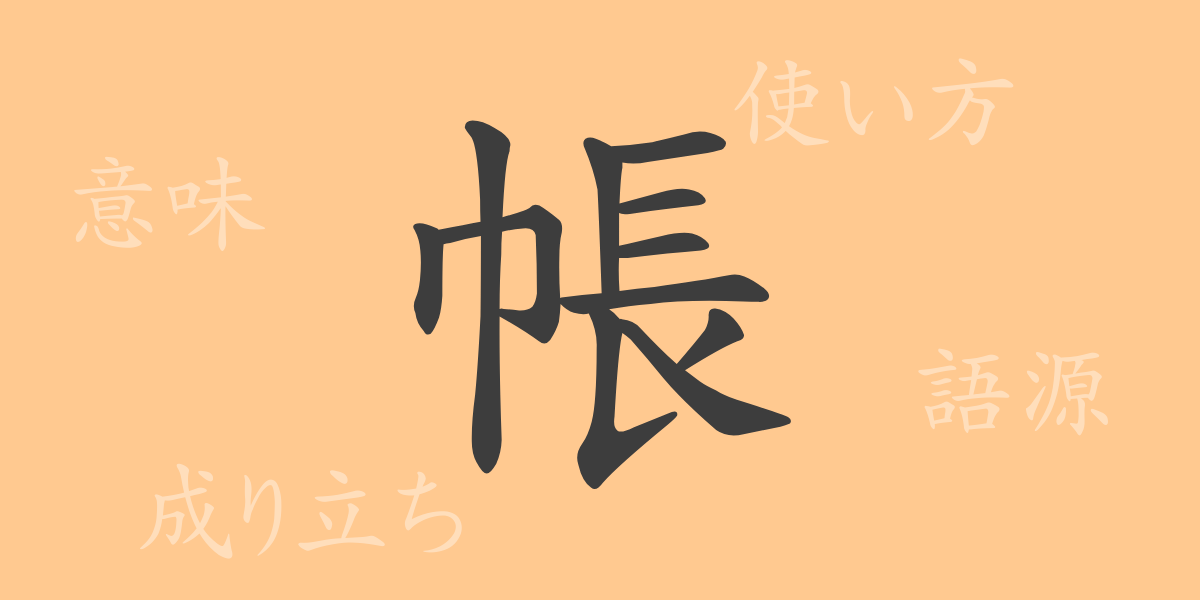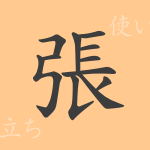The complexity and beauty of the Japanese language are vividly reflected in its kanji, each harboring a rich history. ‘帳(チョウ)’ is one such kanji frequently used in daily life. This article delves into the origins, modern usage, and the profound cultural implications of ‘帳’, exploring how it shapes expressions and idioms, enhancing our appreciation of the Japanese language.
Origins of ‘帳(チョウ)’
The kanji ‘帳’ traces back to ancient Chinese script, where it was formed by combining ‘巾(きん)’, symbolizing cloth, with ‘長(チョウ)’, representing length. Originally depicting a long hanging cloth, it referred to curtains or drapes. Over time, ‘帳’ evolved to denote tools for keeping records, such as ledgers, a meaning that remains prevalent today.
Meaning and Usage of ‘帳(チョウ)’
‘帳’ has multiple meanings: it primarily refers to a ledger or register for recording details, integral to business accounting and closely linked to daily life. It can also refer to curtains or mosquito nets, demonstrating the kanji’s versatility depending on context.
Readings, Stroke Count, and Radical of ‘帳(チョウ)’
Understanding the readings and structure of ‘帳’ deepens our grasp of Japanese:
- Readings: On’yomi ‘チョウ’, Kun’yomi ‘とばり’
- Stroke Count: Composed of 11 strokes.
- Radical: The radical is ‘巾(きんべん)’, associated with cloth.
Idioms and Phrases Using ‘帳(チョウ)’
The kanji ‘帳’ is found in numerous idioms and phrases, each enriching its meanings:
- 帳尻を合わせる: To make financial figures or calculations align, commonly used in business.
- 風上にも置けない: Literally ‘not even placing [someone] upwind’—used to express contempt or disregard, often metaphorically indicating someone being ‘outside the mosquito net’.
Conclusion on ‘帳(チョウ)’
The single kanji ‘帳’ mirrors the culture and history of Japan, deeply intertwined with our daily lives and linguistic expressions. From a ledger documenting essentials to phrases depicting human relations, ‘帳’ profoundly impacts the Japanese language. Whenever you encounter ‘帳’, recall the rich history and meanings it carries.

























